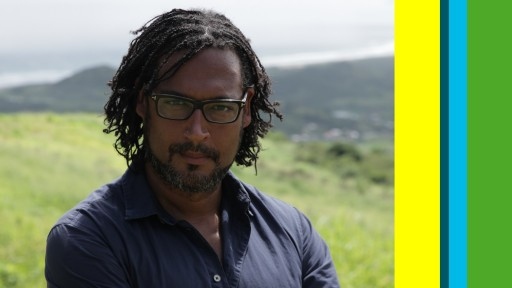How much does our history shape our present? Once you know something dark and shameful, will it change the way you navigate your life? David Olusoga posed this question to a packed-out audience at the Manchester Literature Festival.
In the shadow of the Queen’s passing, it was a contentious move to open the night by discussing the historical tribulations of the monarchy, but it was thought-provoking nonetheless. “The Royal family has a question to ask,” said Olusoga, and what does their history say about the present? And what might our future look like if they chose to address their institutions? It is this kind of controversial and dichotomous conversation that can feel risky in the social media age, but there’s no moving on without discussion (a sentiment echoed in another MLF talk this year with Nihal Arthanayake).
I left high school nearly eight years ago but I can still recall my history classes. We spoke mostly about monarchs, the plague, and both World Wars, but the content felt somewhat lacking, the narrative forced and focused on the white British population. When a classmate recalled that the teacher told the class that ‘The USSR had no involvement in the war’, everyone reacted with the same raised eyebrows. It was the first time I thought we weren’t being told everything about our past, or, at the very least, being given an airbrushed version.
Olusoga testifies to this feeling himself, a lingering notion of not quite being in possession of the full story. “There’s more to this history than I’m being told…behind every fortune is a dark crime,” he tells the audience at the Martin Harris Centre.
Olusoga is concerned with the narrative placed upon history, criticising people’s habit of using it to “make themselves feel good”. If the past is so interwoven with our present, we are doing ourselves an injustice by focusing on the parts of it we deem “good”. “What’s lost is history itself,” reflected Olusoga.
He added: “Historical ignorance [has been made] into a national virtue.” This claim is perhaps best evidenced by circumstances we are living through today: Russian citizens and descendants are expected to rectify their dark past, but the UK attempts to criminalise those who want to rectify ours. Consider the people who appeared in court for pulling down a statue of Edward Colston in Bristol, a figure whose company was responsible for the enslavement of 84,000 African men, women, and children. People defend their own dark past yet expect others to come to terms with theirs.
Our future relationship with history is something Olusoga looks forward to, with young people he describes as the “wiki generation”. He sees a hunger in them to question, to learn, to face the discomfort of what their ancestors did and allow the people who pay the price to join the conversation on how to fix it.
“It’s a hard message, I’m surprised anyone turns up,” said Olusoga. He’s not wrong, I felt it myself. However, I left this talk with a renewed sense of intrigue. We must look introspectively, address our own issues before we make others address theirs. No one is saying it will be easy, but it might just make for a better future if we commit to the hard work.
David Olusoga has a selection of books available to buy from all good book stores, click here to browse his works and purchase your own copy.













